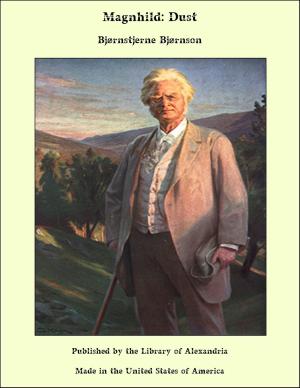| Author: | George MacDonald | ISBN: | 9781465550583 |
| Publisher: | Library of Alexandria | Publication: | March 8, 2015 |
| Imprint: | Language: | English |
| Author: | George MacDonald |
| ISBN: | 9781465550583 |
| Publisher: | Library of Alexandria |
| Publication: | March 8, 2015 |
| Imprint: | |
| Language: | English |
AMONG the young men assembled at the University of Prague, in the year 159-, was one called Karl von Wolkenlicht. A somewhat careless student, he yet held a fair position in the estimation of both professors and men, because he could hardly look at a proposition without understanding it. Where such proposition, however, had to do with anything relating to the deeper insights of the nature, he was quite content that, for him, it should remain a proposition; which, however, he laid up in one of his mental cabinets, and was ready to reproduce at a moment’s notice. This mental agility was more than matched by the corresponding corporeal excellence, and both aided in producing results in which his remarkable strength was equally apparent. In all games depending upon the combination of muscle and skill, he had scarce rivalry enough to keep him in practice. His strength, however, was embodied in such a softness of muscular outline, such a rare Greek-like style of beauty, and associated with such a gentleness of manner and behaviour, that, partly from the truth of the resemblance, partly from the absurdity of the contrast, he was known throughout the university by the diminutive of the feminine form of his name, and was always called Lottchen. “I say, Lottchen,” said one of his fellow-students, called Richter, across the table in a wine-cellar they were in the habit of frequenting, “do you know, Heinrich Höllenrachen here says that he saw this morning, with mortal eyes, whom do you think?-Lilith.” “Adam’s first wife?” asked Lottchen, with an attempt at carelessness, while his face flushed like a maiden’s. “None of your chaff!” said Richter. “Your face is honester than your tongue, and confesses what you cannot deny, that you would give your chance of salvation-a small one to be sure, but all you’ve got-for one peep at Lilith. Wouldn’t you now, Lottchen
AMONG the young men assembled at the University of Prague, in the year 159-, was one called Karl von Wolkenlicht. A somewhat careless student, he yet held a fair position in the estimation of both professors and men, because he could hardly look at a proposition without understanding it. Where such proposition, however, had to do with anything relating to the deeper insights of the nature, he was quite content that, for him, it should remain a proposition; which, however, he laid up in one of his mental cabinets, and was ready to reproduce at a moment’s notice. This mental agility was more than matched by the corresponding corporeal excellence, and both aided in producing results in which his remarkable strength was equally apparent. In all games depending upon the combination of muscle and skill, he had scarce rivalry enough to keep him in practice. His strength, however, was embodied in such a softness of muscular outline, such a rare Greek-like style of beauty, and associated with such a gentleness of manner and behaviour, that, partly from the truth of the resemblance, partly from the absurdity of the contrast, he was known throughout the university by the diminutive of the feminine form of his name, and was always called Lottchen. “I say, Lottchen,” said one of his fellow-students, called Richter, across the table in a wine-cellar they were in the habit of frequenting, “do you know, Heinrich Höllenrachen here says that he saw this morning, with mortal eyes, whom do you think?-Lilith.” “Adam’s first wife?” asked Lottchen, with an attempt at carelessness, while his face flushed like a maiden’s. “None of your chaff!” said Richter. “Your face is honester than your tongue, and confesses what you cannot deny, that you would give your chance of salvation-a small one to be sure, but all you’ve got-for one peep at Lilith. Wouldn’t you now, Lottchen















